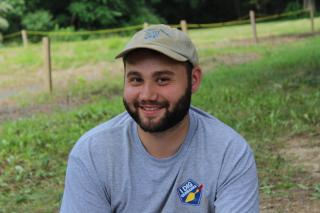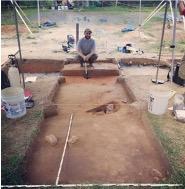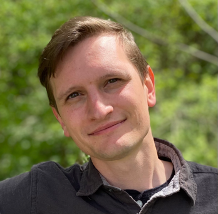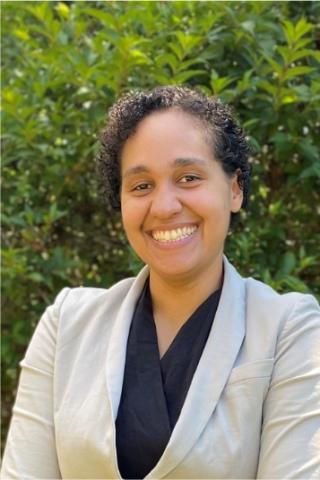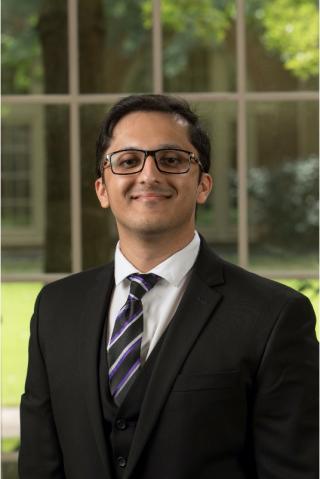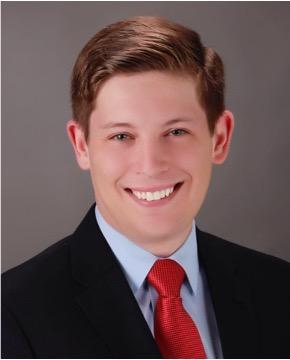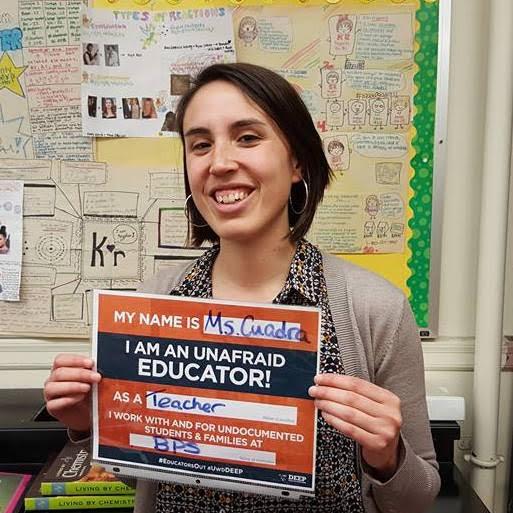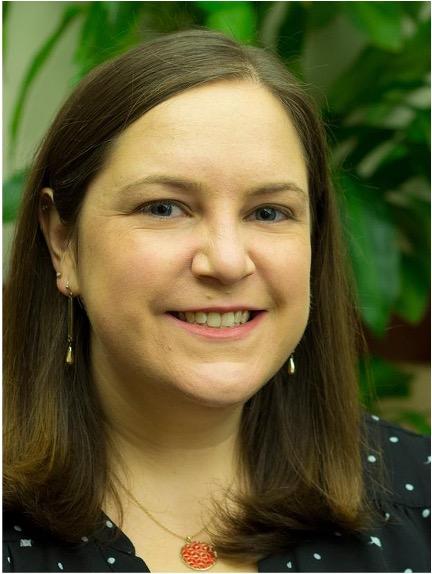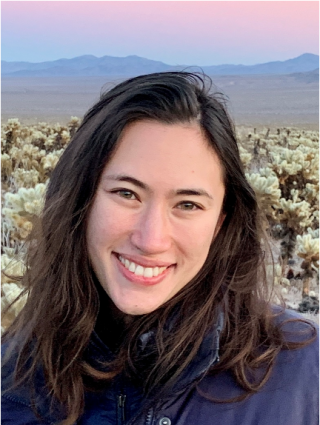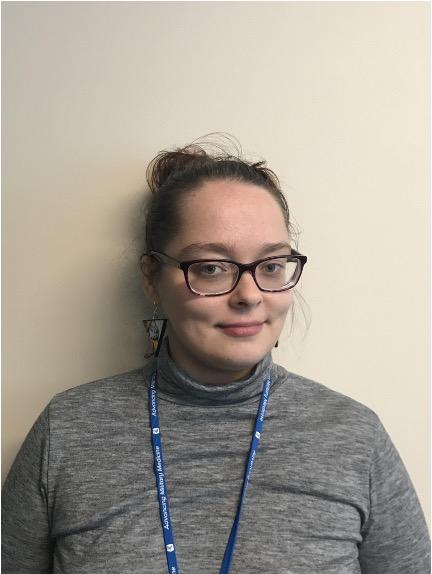Undergraduate Alumni Careers
Discover some of our B. A. alumni careers since graduation!
Sean Jones
“In 2016, I graduated with a B.A in Classical Languages and Literatures, specializing in Classical Humanities. As a classics student I gained a toolkit of critical analysis, synthesis, and cultural understanding that has empowered my goals and guided my career trajectory. Since graduating, I have worked both as a museum professional and professional archaeologist around the Mid-Atlantic Region.
After graduating I became a museum educator for Historic London Town and The College Park Aviation Museum. These opportunities allowed me to apply my historical knowledge and to facilitate interactive education. Moreover, I have applied my critical and analytical skills in discovering material culture and interpreting the lives of past individuals through archaeology. I have been fortunate enough to work as a contract archaeologist for Anne Arundel County, The State of Maryland, The National Park Service, and non-profit organizations. My work led me to return to school and receive a master’s degree in Applied Anthropology, focusing on Historical Archaeology. My work in graduate school centered around the application of historical and archaeological knowledge to facilitate education and public outreach by conducting archaeological investigations and contributing to the interpretation of colonial history for a descendant community. This work has led to the publication of a technical report and an academic article, to my eligibility as a Registered Professional Archaeologist (RPA), and to the completion of my graduate degree in Spring 2020.
I am now the Collections Specialist for the Maryland National Capital Park and Planning Commission (MNCPPC) Prince George's County Archaeology Office. In this position, I am responsible for the curation and processing of all archaeological and paleontological materials gathered from Commission parklands in the County. These artifacts tell the story of human activity in the area from 10,000 B.C.E to the modern day!”
Jessica K. Anderson
I taught Latin for two years at Williamsburg Charter High School in Brooklyn, NY (2009 - 2011).
I left Williamsburg Charter to help found a Latin program at Maspeth High School, a brand new classical high school in Queens, NY. I am now in my second year of teaching Latin in Maspeth. Nearly five hundred students take Latin at MHS every day, and when we reach capacity in 2015, there will be nearly one thousand students enrolled in Latin. In May 2012 I received my M.A. Summa Cum Laude from Hunter College in Adolescent Education: Latin, grades 7-12.
In addition to teaching, I have organized two clubs at Maspeth High School. I am the advisor for our Key Club, a community service based club, and a co-advisor for our Classics Club, which will be competing in its second certamen next month.
Michael Doane
“When people asked me what I'd do with a degree in Classics, my go-to answer was always that I could do anything. I still think that's absolutely true. It's such a diverse field of study that at its essence trains one to dig deep and work hard and love the act of doing and thinking. Learning has become a motivator, an end in itself for me, rather than a means to some end point. I approach all my work like this now.
Soon after graduating from University of Maryland in 2012 with a B.A. in Classical Languages and Literatures I realized that I wanted to break into a content marketing career. But I faced a problem. Most of the positions I found required some knowledge of programming languages (especially HTML, CSS, and Javascript). Luckily my degree in Classics trained me to learn very difficult things quickly. I spent a few months studying these programming languages and the principles of marketing in my spare time and finally met with a software company when I was confident with my skills.
I've worked in marketing for nearly a decade now. I've had the pleasure of helping technology startups, companies within the conference and trade show industry, and authors find customers and grow their businesses. I've even been part of a major merger as part of a venture-capital backed series of acquisitions! Having a background in Classics helps me bring a unique perspective to the business world and has ultimately set me up for a successful career doing something I love.”
Aaron Hershkowitz
After receiving dual B.A.s in Classical Languages and Literature and English Literature in 2009, I went on to pursue my PhD in Classics at Rutgers New Brunswick. I am currently at work on my dissertation, which explores demagogic politicians and political leadership in Imperial Athens.
One of my major projects involves using a modern spreadsheet program to statistically analyze Athenian financial inscriptions. I presented the initial results of this analysis at a panel on Athenian hegemonic finances at the Celtic Conference in Classics at the University of Edinburgh in 2010, and a considerably more advanced version is forthcoming as a chapter in a collection of the papers of the panel, to be published by the Classical Press of Wales. I was granted an MPhil by Rutgers in 2013 in recognition of my continuing work on the subject. I am currently exploring funding opportunities that would enable me to work directly with the inscriptions at the Epigraphical Museum in Athens, where they are housed.
In 2013-14 I have been selected for the position of Scholar Teacher in Classics by the Federated Department of History at Rutgers-Newark and NJIT. In this capacity I am teaching the two-semester Elementary Latin course as well as courses on Greek Economy and Society and on Greek Law, all while continuing my research.
Ashish George
"After graduating with a B.A. in Classics in 2010, I worked at Boston Children's Hospital for 2 years before entering medical school at the University of New England College of Osteopathic Medicine.
My education in the Classics has been absolutely valuable both in my job and in my current medical training. Although properly using Greek accents doesn't come up everyday, the understanding of the human psyche and emotions that Classics has provided has been indispensable. The ability to have a more holistic understanding of a person, as well as to empathize with patients, has allowed me to form deeper connections with the patients that I have worked with and to provide them with more well-rounded care. And knowing Latin and Greek has made certain parts of medical school much more straightforward!"
Tammy Kirk
"I graduated with a B.A. in Classical Languages and Literature in 1998. In 2003, I returned to school to earn a Master of Library and Information Science at the University of Kentucky (UK) in Lexington. I was fortunate enough to receive an assistantship and worked in the library’s reference department while learning to become an information professional.
An added bonus for attending UK was being able to interact with students in their living Latin program. Although my Latin was pretty rusty I was made welcome at many a Cena Latina where we had beer and pizza while only speaking in Latin. Some of us even branched off and held Greek breakfasts!
After graduation I began my first job at an Air Force library in Dayton, Ohio. There, because of my strength in languages, I was tasked with managing many aspects of the library's translation program. My language training was even more advantageous at my next job as the acquisitions librarian at the Defense Language Institute (DLI) in Monterey, California. While DLI, of course, teaches only living languages, the faculty and students at DLI recognized the commitment required to learn such complex languages as Greek and Latin.
After DLI I moved into a more academic environment as a reference librarian at the Naval War College in Newport, Rhode Island. My language-learning background made me the natural choice to chair a committee to evaluate online language-learning programs . I have found that just as people can be math phobic, many people are also language phobic. Because of my obvious interest in languages I was made the point of contact for foreign-language related questions and tasked with creating a guide for web resources for learning modern languages (http://usnwc.libguides.com/content.php?pid=85882, but somewhat out of date).
Currently I work for the U.S. Army Corps of Engineers in Nashville, Tennessee. Having a grasp of Greek and Latin is useful when researching technical questions because the language of science is rooted in Greek and Latin.
So far during my career while I have rarely used my Greek and Latin training to read Greek or Latin my Classical background has benefited my career in many ways. Studying those languages closely has positively impacted my speaking and writing abilities -- two skills that are critical to advancing in many careers. As well as giving me skills to advance at work, the discipline required to study Classics at UMD has also made my continuing education seem easy by comparison. After all, the readings for my homework in graduate school were all in English!"
Monica Tsuneishi
Armed with my Classical Studies BA from the University of Maryland (2006), I went on to earn an MPhil in Classical Studies from the University of Cambridge (2007). From there, I spent a couple years substitute teaching until I found myself enrolled in the University of Michigan's School of Information, where I earned my MSI in Archives & Records Management and Preservation of Information (2011). I spent the next couple years working various jobs in the University of Michigan's Library system, most recently
working with the Early English Books Online-Text Creation Partnership, where I proofread and edited transcriptions and text markup, occasionally getting to put my Latin to use.
In the fall of 2013, I will start my new position at the University of Michigan Libraries as the Papyrology Collection Manager, working under the Papyrology Archivist. The University of Michigan's Papyrus Collection is the largest in the Western Hemisphere with close to 20,000 individual fragments. In this position, I will be maintaining and facilitating the use of the Collection--both Papyrus and Reference. I will also maintain public relations information for the Collection and assist in Papyrological projects and research. My personal motto is: Once a Classicist, always a Classicist--but now
with Archivist Power too!
John Wood
I was privileged, while a student at the University of Maryland, to be able to obtain a degree in Classical Languages and Literatures, a part of a rich, enjoyable undergraduate career that saw me obtain two other degrees and countless memories, friends, and experiences. I would not give up my time at Maryland for anything; it has made me who I am, shaped my future life, and provided me with the tools to overcome many challenges.
For me, the Classics degree was an important part of my education, which was heavily centered in the liberal arts and social sciences. As a Classics major, I took many literature classes, and read many of the works of the ancient authors. I had the privilege of traveling twice to Europe, and, perhaps most importantly for me in my present-day life, I wrote countless papers on many varied topics, from the wars of Alexander to the life of a traveling young man in the Victorian period (yes, that’s Classics!). To a college student, that might seem tedious. However, it provides one of the most important skills one can cultivate, the ability to write well and convey meaning in an era when the written word is more ubiquitous than it has ever been.
Today, anyone with a computer and a social media account can share their opinions on any topic they choose. For many of us, those tools have opened up many doors, able as they are to bridge thousands of miles in seconds and reunite us with friends we haven’t seen in years. The ability to write, and write well, can provide what the Romans called gravitas, a measure of pull and social importance. In today’s society, gravitas can be earned, in large part, with how you convey yourself in the written realm. That superior cover letter might catch the eye of the hiring manager, or your well-written report could earn you distinction among your co-workers. Understanding how to synthesize information and write well, the things Classics teaches in abundance, could help you greatly in your professional career.
When I entered the working world after graduation in 2007, it was these skills that helped me the most. Today, I work for the Commonwealth of Pennsylvania, helping low-income households find affordable medical care. This has become very important with the advent of the new health care law and the continuing sluggish economy. As part of my job, I am expected to write reports multiple times per day as cases come through our system. I also must sift through large amounts of data, determine which portions of that data are relevant, then apply that data in a different way for each case. What I learned as a student is directly helping me as a professional.
Last, though, and perhaps most important, is that my Classics degree allowed me to immerse myself in the great ancient civilizations. I got the chance to read incredible literature, travel to foreign countries, and associate with great people. I still have all my books, from all my classes, and still read them today. My time as a Classics major has given me a lifelong love of the subject and a wealth of knowledge, and I believe that is the most important thing of all. I urge all students, especially undecided ones, to take a Classics course, even for just a core credit. It may turn out to be one of the best decisions you ever made.
Teresa Hepler
“I came to the Classics department as a first generation college student from the D.C. area fascinated by the interplay of the ethnically and culturally diverse peoples of the Mediterranean. I read the Odyssey when I was 10 and it ignited a fierce love of mythology and learning about other cultures, both past and present. I majored in Classics on the Latin & Greek track and am now a ‘community lawyer’ in Charlottesville, VA, where I work with communities to eliminate policies that perpetuate poverty.
After graduating UMD in 2017, I earned my M.A. at the University of Chicago in Humanities, where I wrote a thesis on the intersection of religion and the mother-child relationship in the Bacchae. I went on to work as a paralegal in San Francisco, CA and then attended law school at the University of Virginia. My first job as a lawyer was as a public defender in New Hampshire.
Classics at UMD set me up with the analytical skills I use everyday as a lawyer. Reading primary sources in their original languages taught me how to see an ever-changing world through the eyes of very different people, a skill I used to relate to clients and to persuade prosecutors as a public defender and still use as a community lawyer. I am constantly strategizing as an attorney, a skill I honed while translating ancient documents and determining meanings within the backdrop of the author's culture. Obviously studying oratory and drama helped me a great deal as well. The most useful skill of all Classics imparted was the ability to have fun in encountering the ‘Other,’ a label that ironically now applies to the Ancient Greeks in today's world.”
Haider Ali
“I did my Bachelors in Classics from UMD. As I was searching for jobs during my final year in college, I found a position as a Data Quality Analyst at the NPD Group. The set of skills they were asking for were similar to the ones I had honed while earning my Bachelor’s degree, such as researching, analyzing specific elements for meaning, and critical thinking. I applied for the job as it aligned well with my naturally curious nature, and after several interviews and tests, I finally received the offer and accepted it. Immediately I realized I had found my calling. Although I was coming from a humanities background that required little to no technical skills in programming, I was utilizing the same analytical skills I had learned during my major to research data from retail companies. I loved analyzing the data we were provided. I was particularly fascinated by how I could take the smallest piece of data and learn so much from it. Additionally, I could use that information to study trends and make future predictions about the company or what a company could do to optimize its business.
I worked for a year at the NPD Group before I switched to Wells Fargo as a Securities Analyst. The Wells Fargo job was slightly more technical than my previous one, but I enjoyed the challenge as I was exposed to a new world of data, software tools, and business insights. It was during this time I realized that I needed additional skills to advance myself in the field of Data Analytics and Data Science. Therefore I enrolled and earned my Master’s in Business Analytics at the College of William and Mary. This program has given me deep insights and knowledge of Big Data and the mathematics behind it. It has also improved my technical skills, which is something I want to continue developing. I now have a position at Booz Allen Hamilton as a Data Scientist, which is very satisfying and gives me confidence that I have made a significant advance in my career from the technical side.”
Katherine Mann
“After graduating from UMCP with a B.A. in Classical Languages and Literature as well as a B.S. in Biological Sciences, I went to Washington University in St. Louis to pursue my Ph.D. in Molecular Microbiology and Microbial Pathogenesis, where I researched the molecular biology of mycobacteria, including the causative agent of tuberculosis. My classics major prepared me for my Ph.D. both by helping me remember the Latin origins for many bacterial strains (bacillus, streptococcus, coronavirus, etc.), but more importantly by boosting my critical thinking skills and honing in on higher order thinking that far exceed the rote memorization competency that a biology undergraduate degree often requires.
After a short postdoc at the University of Texas Southwest Medical Center working on the interactions between enteric viruses and healthy gut bacteria, I was an ORISE fellow at the U.S. Food and Drug Administration’s Center for Drug Evaluation Research. I am now a science and technology manager at the U.S. Department of Defense’s Defense Threat Reduction Agency, where I manage a research portfolio related to the development of medical countermeasures against chemical and biological threats. Classics is still close to my heart and I am a big proponent of learning from classical languages and history. The writing skills I developed as a classics major have also translated into the variety of documents that I have written over the course of my career—from journal publications to my PhD thesis to memos and presentations—being able to concisely and convincingly prove your point while showcasing my language and communication skills has paid off time and time again.”
Zachary Sanford
“After receiving my BA in Classical Languages & Humanities along with my BS in Microbiology in 2008 I pursued work in the field of Genetics at the Smithsonian National Zoological Park in Washington D.C. and later at Johns Hopkins Hospital in Baltimore. Shortly thereafter I began conducting clinical research as a Burn Surgery Research Associate at Washington Hospital Center before continuing my education at Drexel College of Medicine in Philadelphia where I received my Master’s Degree in Medical Sciences. I then attended medical school at the Joan C. Edwards School of Medicine in West Virginia and returned to Maryland where I worked as a Research Fellow in Advanced Foregut and Minimally Invasive Surgery at Anne Arundel Medical Center in Annapolis. I went on to complete my Surgical Internship at the University of Maryland Medical Center in Baltimore and am currently finishing my General Surgery Residency at Arnot Ogden Medical Center in New York.
An education in the Classics used to be a compulsory element of medical training - seemingly obtuse medical vocabulary is more manageable when you know the myths and stories behind their names and a passing knowledge of Greek and Latin roots can come in handy from time to time. And while knowing little details like the difference between a Caduceus and the staff of Asclepius can help you appreciate the history of medicine, an appreciation of the Humanities in general can itself help form a holistic education that expands the philosophical as well as analytical halves of the mind. Plus if it’s good enough for Dr. Fauci, Director of the National Institute of Allergy and Infectious Diseases, the nation’s top infectious disease expert, and himself a Classics major, then it’s good enough for me!”
Natalia Cuadra-Saez
“Since graduating from UMD with a double major in History and Classics in 2011 I have moved to the Boston area where in 2014 I earned my M.Ed. at the Harvard Graduate School of Education. I taught history in the Boston Public Schools for four years and then started working full-time as an organizer for my union-- the Boston Teachers Union (BTU). Now, after having worked for 3 years as an internal organizer I will be starting this school year as the BTU’s Director of Organizing, leading our department of organizers in fighting for education justice here in Boston and beyond.
During my time at UMD my studies were complimented by my involvement in several extra-curricular activities: I sang in various UMD choirs, I helped launch a campaign to bring Native American Studies to the campus, I was a co-founder of Cooperative Housing at UMD (aka CHUM), and I was a legislator in the Student Government Association. My involvement in campus politics and my study of History and Classics set me up for my current career in teacher union organizing. My Classics major in particular helped me to understand more deeply the roots of our democratic systems in the United States. My current job is about bringing community members together to envision the future we believe our students and communities deserve and then developing a campaign plan to get us to that future. In the courses I took as a Classics major I learned lessons about strategy, about civic engagement, about logic and persuasive arguments, among many other things that I would be lost without.”
Rachel Wobrak
“For the past 10+ years I've been back at UMD working in the University Career Center as a Program Director with the College of Computer, Mathematical & Natural Sciences. I plan programming for students looking to gain knowledge of careers/industries and I also meet one on one with students planning their job/internship strategy, preparing for graduate school, etc. Before coming back to UMD, I worked at another institution as a Resident Director. I really enjoyed working with the student staff, but I missed the career conversations I had with students while I was a Graduate Assistant during my time in grad school.
My Master of Education is in Student Personnel in Higher Education. It was a combination of my involvement while an undergrad student at UMD and the skills I learned from being a Classics major that gave me the confidence to pursue this career in student affairs. As an undergrad Classics major, I loved what I was studying, but I started off a little lost not knowing what I wanted to do with my degree. There didn't seem to be a clear path. It was my involvement in on campus jobs working for Res Life as a Community Assistant, as a House Manager in the Clarice Smith Center for Performing Arts Center and as a student assistant in the Alumni Association that helped me realize I could use the skills I was learning in Classics in a lot of different ways. I realized that my studies had taught me better reading comprehension which I then took on to my graduate studies. I learned about different cultures and history, learned to appreciate these differences and look to learn about others in my work with students. Group projects in some of my major classes taught me the importance of collaboration and communication in the working world. All of these things are skills I still use today even if my knowledge of ancient Greek plays and Greek and Roman history doesn't come up on a daily basis anymore. I believe that my choosing to major in Classics contributed to my choice to be a lifelong learner, especially when it comes to my role on a university campus learning about career paths, industry tips and information to pass along to the students I work with every day.”
Julia Wong
“Julia graduated in 2013 with a B.A in Classics and French Language and Literature, having been drawn to the Classics program after taking high school Latin. During her time at UMD, she had the opportunity to participate in the Winter in Italy course and T.A. the Spring Break in France course for Prof. Doherty.
After graduating, she worked as a financial analyst at the University’s National Foreign Language Center while completing her MBA at the Robert H. Smith School of Business. She now works in corporate finance -- her current role is as a lead financial analyst with the financial planning and analysis group at Deloitte. While she doesn’t get to directly apply her Classics background everyday anymore, she still enjoys the same puzzle-solving quality that she found so enjoyable in translating Latin. As it turns out, the logic it takes to determine a declension isn’t so different from what is used when testing financial scenarios. And literary analytical skills are used daily in a job where it’s necessary to deep-dive into elements where others would have the tendency to look at the bigger picture. Letters and numbers aren’t so different and just from being a Classics major I was able to bridge the two.”
Anastasiya Kochergina
“I am currently nearing my third year as a regulatory coordinator at the Henry M. Jackson Foundation for the Advancement in Military Medicine (HJF) and my fourth year overall working in the health industry. HJF is a non-profit that supports military medical investigators and clinicians in accomplishing their research goals. Coincidentally enough, I became interested in medical research while I was a Classics undergraduate student at UMD, College Park. Sometime in 2014 or 2015, I had helped a graduate student with their research into the Hippocratic Corpus and whether the listed treatments and ingredients pointed towards a systematized medical tradition. I am also working towards my Master’s degree in Biotechnology with a Specialization in Regulatory Affairs.
I developed and honed many valuable skills, such as research, content analysis, and writing, during my experience within the Classics department. So, I’d say that my B.A. in Classical Languages and Literatures has definitely prepared me for my current career and educational progression. Additionally, I have not given up my love for Ancient Greek and Latin and spend my off-hours practicing the languages while working through some of my favorite classics, like Sophocles’ Ajax or Virgil’s Aeneid. In the future, I hope to return to the Classics more formally and provide lessons in Latin or Ancient Greek to interested children. Hopefully, I’ll be able to pass on some of my love for the languages, history, and stories to them.”
Visit our alumni page to get the latest on Alumni news and events!


